Note for this issue:
This article and subsequent writings in the same title are from essays I have written in Jawiy (a language that emerged and developed in Southeast Asian archipelago and the Malay Peninsula, giving birth to Malay and Indonesian languages spoken today in the region ), and published through my Facebook account and on Mapesa Blog. The English version of the essays will be published for the first time in my HIVE account. I am, in fact, not an English speaker. Therefore I use the Google Translate engine to help me in this matter so that the problem does not prevent me from sharing as well as getting support from communities for various research projects that I am doing with self-help. I am sure, with the help of Google Translate, I can get a pretty good English version as long as I can make the language and style that I use can be understood easily and fits into this machine. But of course, deficiencies and mistakes cannot be avoided, and because of that, I beg you to be forgiven.Geographical location of the place presented:
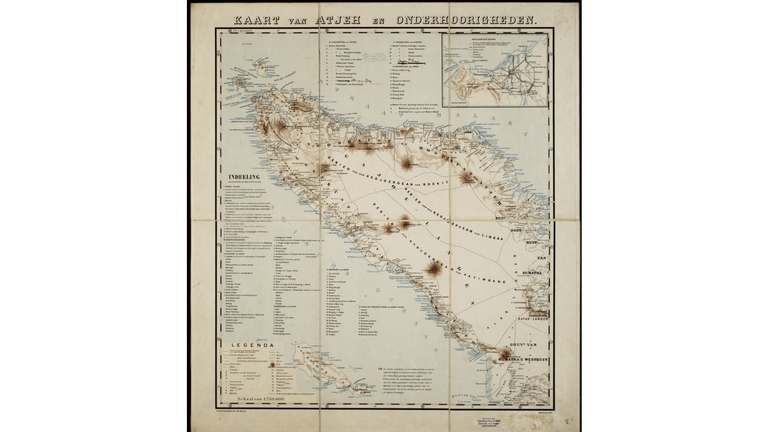
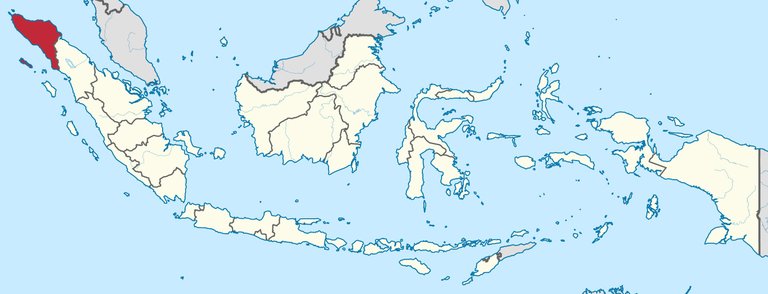
Fragments of the times
Like fragments scattered everywhere!
When looking for it sometimes feels like I'm playing putting together pieces of a picture on a table, and how happy it would be if it was just a game on the table. One fragment is expected to be connected with other fragments so that it makes the image clearer. And in the end, a relatively intact picture can be obtained.
But it was realized later that the whole picture that was aspired to was apparently difficult to obtain, even very far from being reached. Fragments sometimes scattered in a vast space between one and the other is in a long distance. The newly discovered fragment is sometimes also not a part that can be connected with fragments that have been found before, but instead is a fragment that is completely new and requires other fragments to explain it.
Figure 1. A tombstone from the SumatraPasai heritage, a Sultanate in Sumatra which was established between the 13th and 16th centuries. From the name of the capital of the Sultanate, the island of Sumatra is named.
All of this not only demands the role of today's generation with its various scientific fields but also requires the involvement of several generations in the future. The reason is simple, because it is not at all a casual game on the table, but a work in a heavy, winding field and difficult to surpass.
Why? Why do the pieces have to be searched, collected and reconstructed to get a complete picture?
No other, is because it is fragments of the picture of the nation's past; because they are scattered fragments of the age that we want to know more perfectly, recognize them well, and hopefully inspire. The chaotic picture, which shows the feet on the head, the head on the knees and so on, it will never ever be a good source of inspiration, it actually misleads the mind and soul.
Figure 2. Landscape in a village on a northern coast of Aceh. This coastal area, formerly called the Samawi Bay and now, Lhokseumawe, is a famous trading port on the maritime silk route.
But at this point, the questions that are actually boring to answer come back up: Do we really need to have a relatively complete picture of the past? Is it important for us a picture of the past that is composed of facts and that explains the truth? Isn't that a long time ago, which doesn't need to be discussed anymore, other than maybe to fill up leisure time and rest or just to channel hobbies and interests, while what really matters is only how we can live in this time and the future? Why does the old past need to be a source of inspiration? Is it not enough with modernity and technological advances that have been achieved by developed countries that are the source of inspiration? What is our need for the past?
I will not answer these questions as scientists do, because it can certainly be read in history books, even in history textbooks taught in schools. I believe that the answers of the scientists were able to convince that knowledge of the past was of the utmost importance, and that they had explained it at length.
I want to answer as a child who has been breastfeeding to his mother, a woman who was born in a small village on the edge of a river called Krueng Peusangan, in Aceh, where she gave birth to me.
Figure 3. Stacks of ancient tombstones that are hundreds of years old are evidence of a dense settlement in ancient times.
Figure 4. Ancient ceramic bowls and other kitchenware found along with tombstones that are hundreds of years old.
A very subjective answer, of course, and this for two reasons: first, because I am not trying to convince you as scientists do; I just want to let you know if you want to answer like me, as a child who has been breastfeeding to his mother, then I think that is also your right. Secondly, I believe, something objective outside of us will not be able to move anything within us as long as it has not entered the subjective space or turned into something subjective, and what is the point of being objective if it is unable to move anything?!
Repeating the question, what is the need for us from the past? For me, what really matters is not what we need from the past, but how can we escape from the past?
How can I escape from the past while I am sure that until now I have lived and enjoyed the goodness of life is a blessing from my mother's answered prayer.
Aceh, even though its name no longer shines as in the past, but it is still alive and continues in various goodness because of the prayers of its predecessors which were granted. Then how can we escape from the past while we have been present in the past in the hopes and prayers that they raised to heaven, and God the Most Glorious, the Most Gracious has allowed some of them and postponed some of the others because He is the Most Do whatever He wants.
How can we escape from the past while we are in the eyelids of their eyes, in their minds and hearts, when every time they read the word of Allah in Surah Al-Furqan verse 74, which is translated: And those who say: "O our Lord , bestow upon us our wives and our descendants to delight (us), and make us imams to those who fear Allah."
Figure 5. A manuscript of past scientific and intellectual work.
Other than that, maybe even more than that, we also live on the choices they have chosen. The most important and most decisive of all the choices they have chosen is their choice to embrace Islam and hold it tight for life. Nothing is more important than that!
They have chosen Islam, followed and set their hearts in the guidance of ‘aqidah and ‘ubudiyyah, in the guidance of goodness and justice in various fields of life. A choice that always gives praise to God who has guided them and us to Him, and truly they and we will not be guided if God does not guide.
Figure 6. An ancient tombstone with carvings showing unique ornate figures from the works of past artists.
They have determined to inherit Islam to us. I have seen it real with my own eyes how much effort they have made for it, to the point that sometimes it seems to me that they are so panicked and worried that we are leaving a priceless legacy. They carved the phrase "There is no god but Allah and Muhammad Rasulullah" on the thousands of gravestones they left as if to say, we died and disappeared from this mortal world, and this is the only thing we inherited to you! Suppose the carvings on the tombstones are sounds then they are the sounds of tahlil and tahmid that echo throughout Aceh at all times and for all time. So strongly they want us to cling to this choice that can never be replaced.
So, can I escape from the past while the past has come to bring me something that is most meaningful in this life, and continue to guard its sustainability? Certainly not.
"The past" turns out to be one of the dimensions of ourselves today as is the case with the "future", and because of that we need to understand it well even if we have to look for its scattered pieces, gather and rearrange them into relatively intact pictures , and then it can inspire.
Figure 7. Ancient mortar for mashing and smoothing various stuff, found in an ancient settlement.
Thank you for reading and supporting.
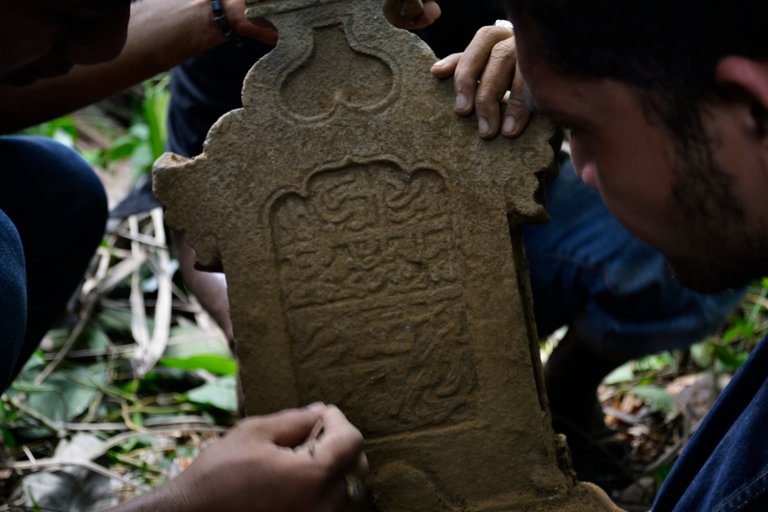
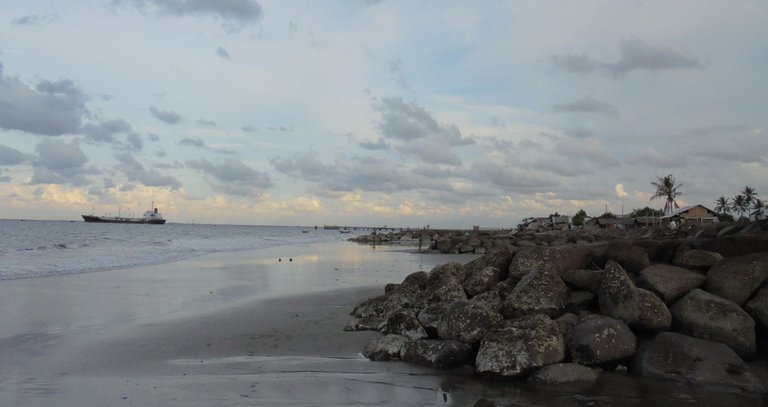
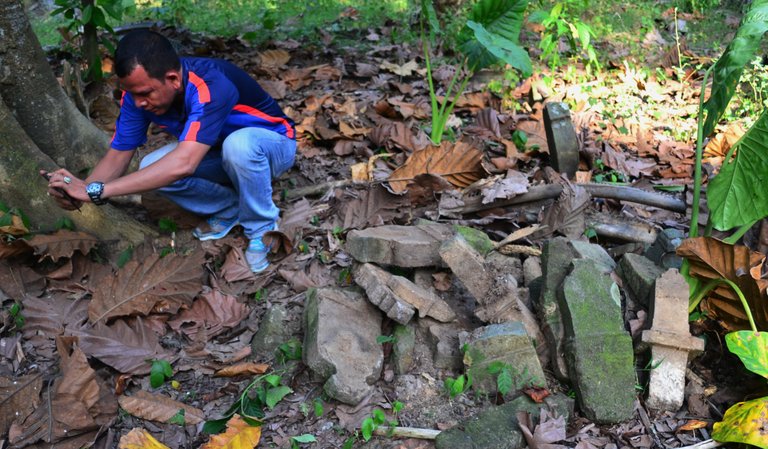
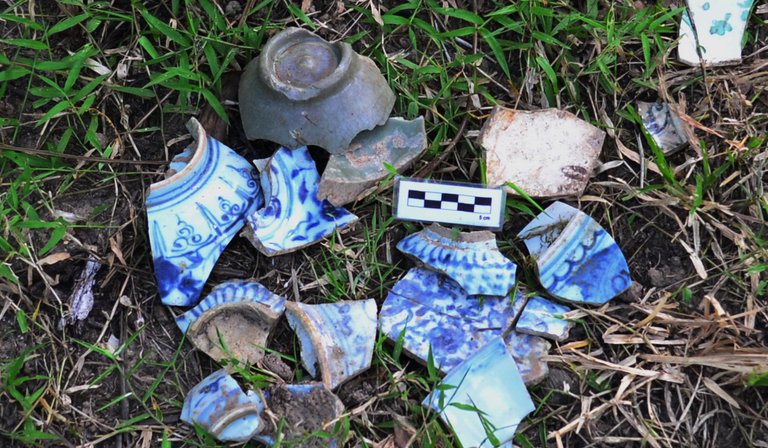
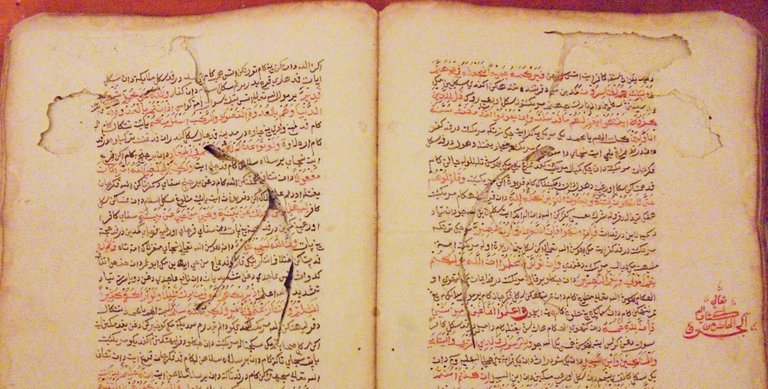
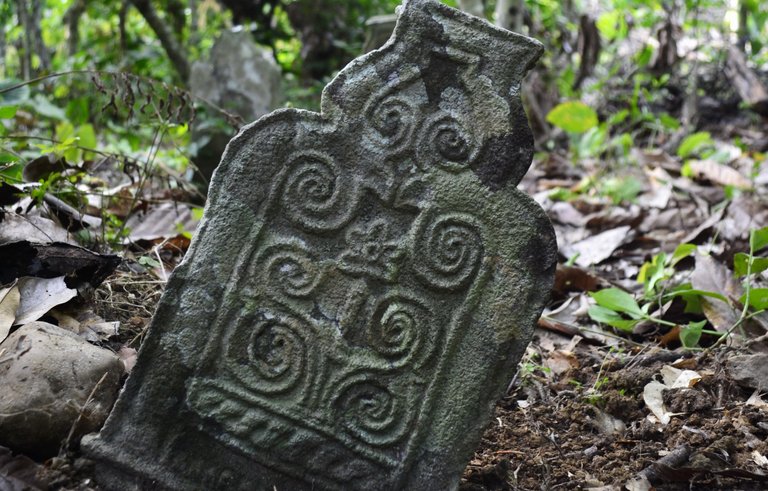
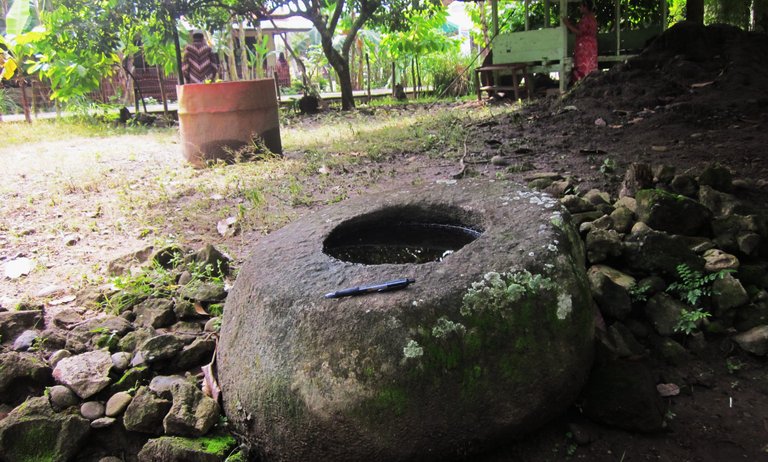
Lhokseumawe now, or formerly known as the Samawi Bay. Looks very quiet now, there is no more bustle of the harbor. I took this photo on 5/25/2020.
The pic below was taken between 1895 and 1910. Creator: Alberti, J.
Title: "Groet uit Telok-Semawé"
Source: KITLV 1405532
Fantastic!
I am daydreamed of by a future in which emptiness there can be disturbed again by the crowd as in the past.
It doesn't matter if sometimes we shake hands and at other times we fight, but clearly, we are connected to each other.
Feel the warmth in that harbor again.
Call for seamen!
O sailors
You are indeed the grandson of a great sailor
Descendants of Muallim in the past
Now Ra-Ubabdar is incarnated in the heart
Raja Kanayan always remembers
You are their grandchild, I have no doubt
(I quote your poem)